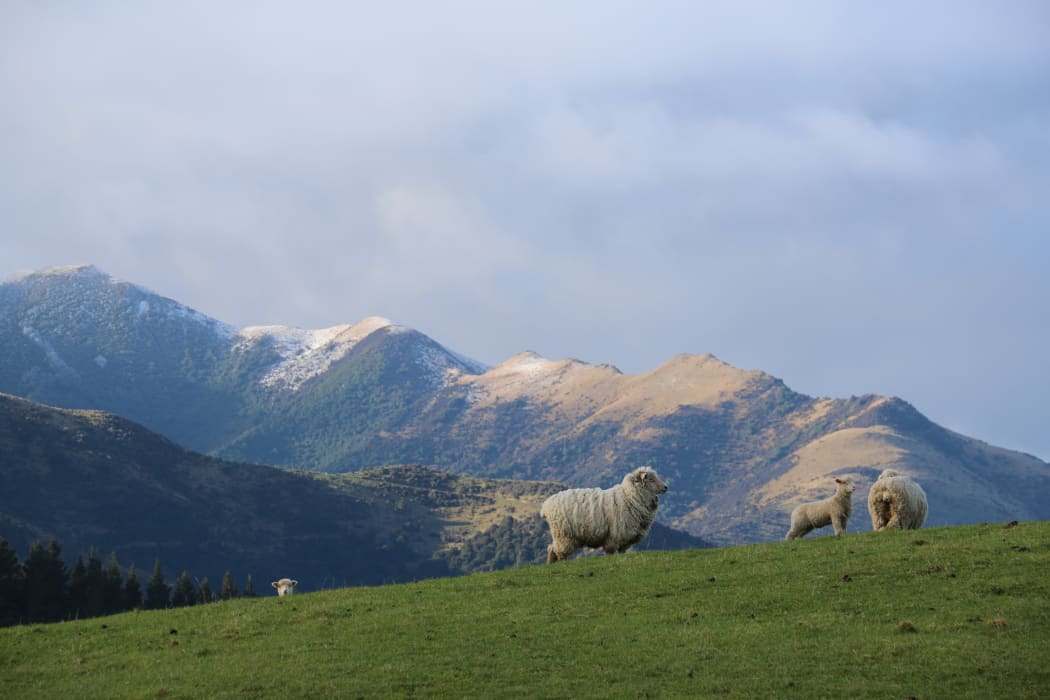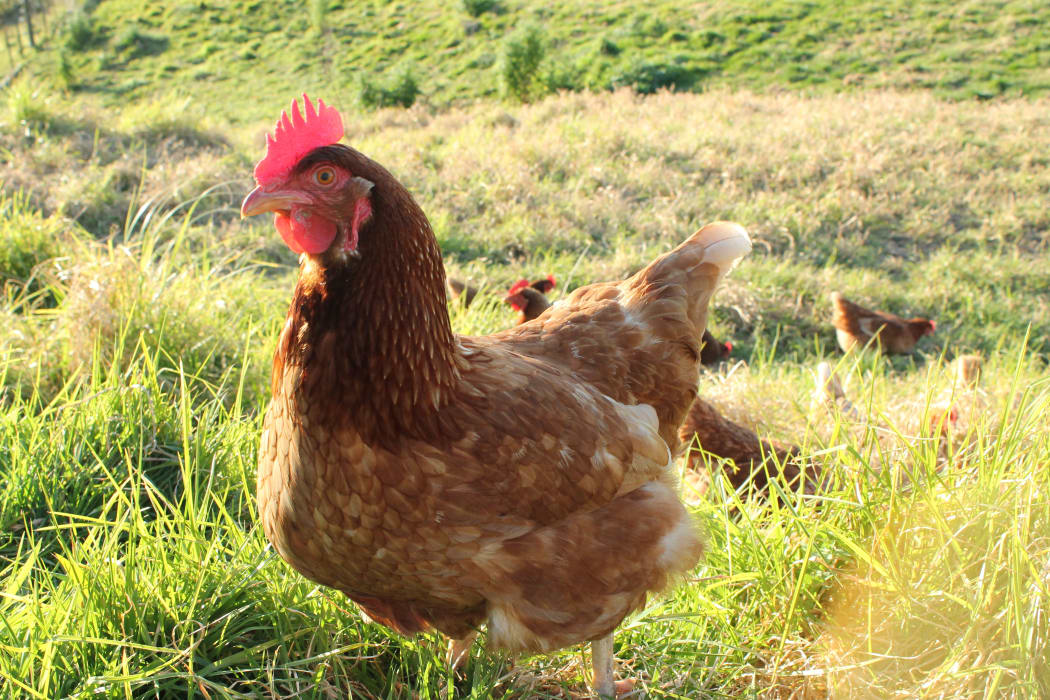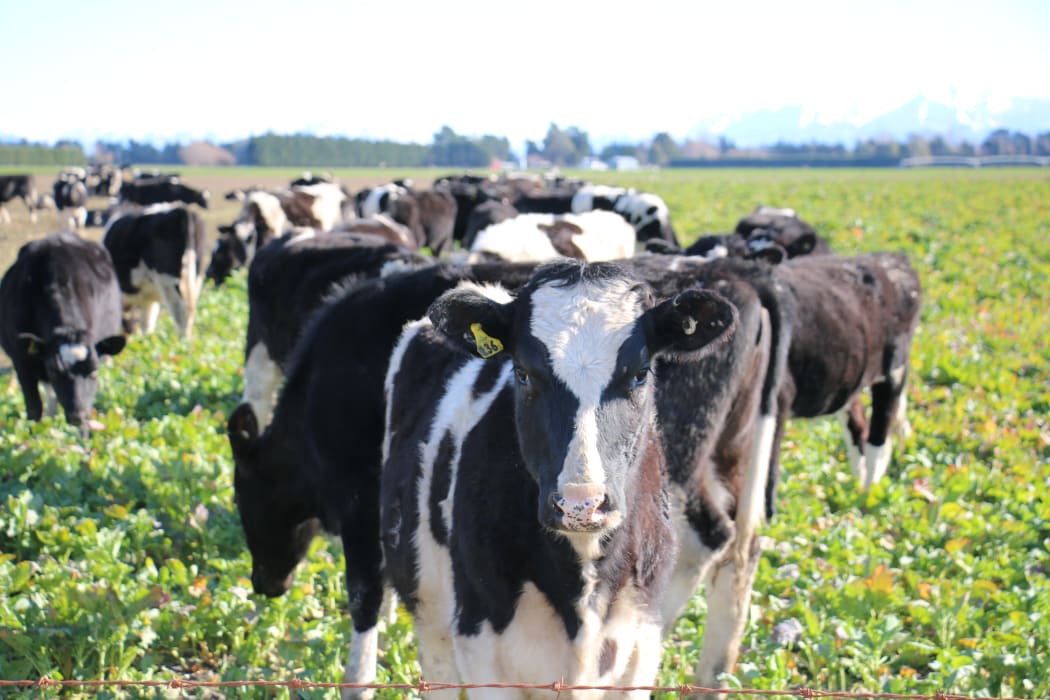
Photo: RNZ / Cosmo Kentish-Barnes
Gisborne has had the rain it's been waiting for. Hoggets have been going through the shearing sheds in Central Otago. Lambing is underway and a minus seven degree frost on Monday had the babies rubbing up against mum to keep warm.
Northland's seen a bit of spring growth and that's had farmers putting their hands up for cattle. Heifers and steers are fetching $3 to $3.50 a kilogram - which is on par with last year. Spring's been drier than usual especially on the east coast.
Around Pukekohe more rain fell over the weekend and into Monday with 40mm or more recorded, then it eased off. It's been cloudy and cool so outdoor crops aren't yet showing rapid Spring growth - that may not matter though because many vegetables continue to be in heavy supply at low prices.
Waikato farms still have plenty of pasture but growth rates have slowed with cooler, wetter weather. A small number of farmers are already looking at closing paddocks for silage. Ag consultants have been reading and re-reading the Government's Fresh Water Action Plan. The consultant we spoke to says if the amount of nitrogen and phosphorus farmers are allowed to use is cut it will be very challenging for a lot of them. He says there'll be no conversions of forestry to farming, sheep and beef to dairying or dairying to vegetable growing.
In Bay of Plenty, the avocado harvest is a bit behind schedule because of wet weather. New Zealand avocados are flowing into Coles supermarket in Australia and into all markets in Asia except China. Fruit size is reasonably large this year and pack-outs better - which means the quality is up. In kiwifruit orchards, Hi-cane - a spray that promotes bud burst has been applied to green and gold blocks - and buds are starting to appear on gold vines.

Photo: RNZ/Carol Stiles
It's been a high growth-rate week in Taranaki with sun and some rain. The back country has been warmer than around New Plymouth and Inglewood. The farmer we spoke to says he's only used half the amount of hay he usually needs in winter, a sign they've had a good run. He says his chickens and ducks are laying flat out, plums are in blossom, larch trees are coming out in leaf and magnolias are spectacular.
Across the island and Gisborne had some good rain earlier in the week and then Thursday and Friday were crackers. The region has had the moisture it's been waiting for - and the rain hasn't been heavy enough to upset lambing. Docking's started on some farms but lambing is yet to begin on others. Farmers are expecting store cattle price will start to lift. Rangitikei and Manawatu were very dry going in to autumn so farms didn't carry their usual stock numbers so need to fill up on cattle. There's also demand for protein in China because hundreds of thousands of pigs have been killed because of swine flu. The meat works will need more cattle to meet that demand and that'll also drive up store prices.
We're told Hawkes Bay is about to get warm, which, when it hits 20 degrees, will really kick fruit trees into action. This week brought the coldest day of the year though - about 9 degrees. Kowhai trees are just waking up and everyone's saying spring is running a week later than usual. Plums are showing clouds of white blossoms. They have a very short flowering period and orchards that were in full bloom when it rained late last week and into the weekend may not have very good fruit set because the pollen will have been washed away. Peaches and nectarines are a picture of pink blossoms. It's a very pretty time of the year. Pastoral farmers will be happy with 50 mms of rain recently although the hills around Havelock North are green lower down but are still looking a bit dormant further up.
Wind machines have been whirring in Wairarapa's vineyards to keep frosts at bay. Cool weather had stalled pasture growth a bit but now the temperature's gone up it's pumping. It's been a good dry winter and spring. Ground is being turned over for crops.
Horowhenua has had cool evenings and people are desperately wanting temperatures to lift a couple of degrees and then grass will start leaping out of the ground. Cows are milking really well but vets are scratching their heads a bit as to why so many are going down...they're being pumped full of the minerals they need.
Frost protection sprinklers have been going in gold kiwifruit blocks this week in the Nelson/Motueka region after a few chilly mornings. Everyone's busy doing orchard repairs and maintenance now that the ground's starting to firm up. There's a tinge of green appearing on apple trees as they awaken from winter hibernation.
Lambing's underway on high country properties in Marlborough while on lower hill farms it's well through. Survival rates are good and there's a lot of tucker around. Grape vines are starting to come into bud.
Our contact at Karamea on the West Coast says he's about 80 per cent through calving. Sunny days this week have been well received but more showers are forecast for the weekend. Milking's going very well. Cows are on grass, silage and are getting a top up of palm kernel. The farmer says he's had 22 surplus heifer replacements so far. They've all been sold and go to their new homes at 3 weeks. The boys are sold at 4-days-old and go to farms where they'll be raised for beef.

Photo: RNZ / Cosmo Kentish-Barnes
A farmer in North Canterbury has started tailing lambs this week. 1500 have been done so far with another 8000 to go. She says next week she'll start spraying off winter crop paddocks and direct drilling oats and peas for baleage. Further south in mid Canterbury, farmers are trying to understand the fresh-water proposal from the government. A packed house attended a forum in Ashburton on Wednesday and left with more questions than answers. The uncertainty this is presenting, along with the existing pressures farmers are all facing, is not helping farmer morale.
Hoggets and younger stock have been going through the shearing sheds in Central Otago. Lambing's underway and a minus seven degree frost on Monday had the babies rubbing up against mum to keep warm.
Calving's well through on Southland dairy farms. Farmers will be pleased to see the end of it as conditions have not been kind to cows and calves, especially in late August. Our contact at Wallacetown near Invercargill is in the thick of lambing. There were 22 millimetres of rain in the gauge on Friday but he says the only dark clouds on the horizon are political. He's been pre-occupied about the impact proposed water plan an how it's going to pan out, while doing the lambing beat.

